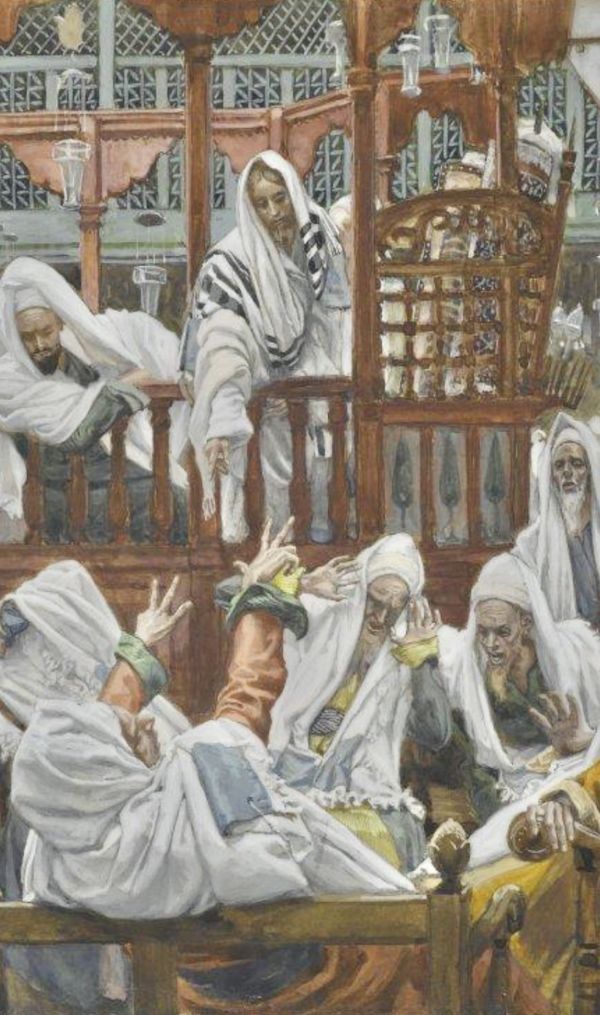Jesus in the synagogue: Deliverance from quietism
(Lk 4:31-37)
In third Gospel, first ‘signs’ of the Lord are the quiet escape from death threats [agitated by his people!] and the healing of the possessed.
In this way of narrating the Jesus story, Lk indicates the priorities that his communities lived: first of all, it was necessary to suspend the intimate struggles, inculcated by the Judaizing tradition and by his "knowing how to stay in the world".
In the stubborn and conformist village of Nazareth, the Master is unable to communicate his novelty, and is forced to change residence.
He doesn’t resign himself, on the contrary: Capernaum was at the intersection of important roads, which facilitated contacts and dissemination.
Among people of all walks of life, the Son of God wished to create a consciousness strongly critical towards the approved doctrines of religious leaders.
He didn’t mechanically mention the teachings - modest - of the authorities, but started from his life experience and from the living relationship with the Father.
Thus he created clear minds and in each one an unusual, non-reductive shudder; which aimed to make reach a higher level to souls harassed by the automatic mentality of quiet living.
The Master still faces the power that reduces people to a condition without originality, allergic to differences.
In the Gospel, the person who suddenly makes sparks has always been a quiet visitor to the assembly, who tirelessly dragged his spiritual life into small areas without color, lacking in breath and rhythm.
But the Word of the Lord has in itself a real charge: the power of the bliss of living, of creating, of loving in truth - which doesn’t hate eccentric characteristics.
Where this Appeal comes, all the demons you don't expect are exposed and jump out of the burrows.
Whoever meets Christ is overthrown; he sees his certainties thrown into the air.
Upheaval that allows the hidden or repressed facets to do their part - even if they are not "as they should be".
In short, the Gospel invites us to welcome all that is in us, as it is, not attenuated; by multiplying our energies - because inside lurks the best of our Call to the personal Mission.
In Christ, our multifaceted faces [albeit contradictory] can take to the field together, without repressing the precious territories of the soul, of the essence, of the character; of another persuasion - even distant or unrepeatablely singular.
The habitué of the assemblies is indeed troubled and questioned, but he doesn’t remain abulic; on the contrary, he makes a showy progress from the dormant and ritual existence - bent, repetitive, off and fake.
He is freed face to face from all the clichés that used to keep him good, subjugated and on a leash.
Even through a protest that breaks apathy, the divine Call forces us to a life as saved sons, of new witness that seemed impossible.
Now no longer on the sidelines, but in the midst of the people (v.35), in the wonder of a deep, personal and unexpected Happiness.
Difference between common religiosity and living Faith.
[Tuesday 22th wk. in O.T. September 2, 2025]












